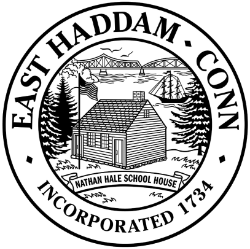Do I Need a Building Permit?
All homeowners are likely to be faced with this question at some point in time. In an attempt to provide an answer, The Town refers to Section R 105.2 of the 2016 CT State Building Code (2012 International Residential Code) as amended.
The following represents a list of work projects that are exempt from a permit.
BUILDING
- Fences not over 6 feet high
- Retaining walls that are not over 3 feet high in height measured from finished grade at the bottom of the wall to finished grade at the top of the wall, unless supporting a surcharge.
- Water tanks supported directly upon grade if the capacity does not exceed 5,000 gallons and the ratio of height to diameter or width does not exceed 2 to 1.
- Sidewalks, driveways, and on grade concrete or masonry patios not more than 30 inches above adjacent grade and not over any basement or story below.
- Painting, papering, tiling, carpeting, cabinets, countertops, and similar finish work not involving structural changes or alterations.
- Prefabricated swimming pools that are less than 24 inches deep.
- Swings, nonhabitable tree houses and other playground equipment accessory to a one or two family dwelling.
- Window awnings supported by an exterior wall that do not project more than 54 inches from the exterior wall and which do not require additional support.
ELECTRICAL
- Repairs and maintenance: A permit shall not be required for minor repair work, including replacement of lamps and fuses or the connection of approved portable electrical equipment to approved permanently installed receptacles.
GAS
- Portable heating or cooking appliances with a self-contained fuel supply.
- Replacement of any minor part that does not alter approval of equipment or make such equipment unsafe.
- Portable fuel cell appliances that are not connected to a fixed piping system and are not interconnected to a power grid.
MECHANICAL
- Portable heating appliances with a self contained fuel supply.
- Portable ventilation appliances.
- Portable cooling units.
- Steam, hot or chilled water piping contained within any heating or cooling equipment regulated by Chapters 18-24 of this code.
- Replacement of any minor part that does not alter approval of equipment or make such equipment unsafe.
PLUMBING
- The stopping of leaks and the clearing of stoppages in drains, water, soil, waste or vent pipe valves; provided, however, that if any concealed trap, drainpipe, water, soil, waste or vent pipe becomes defective and it becomes necessary to remove and replace the same with new material, such work shall be considered as new work and a permit shall be obtained and inspection made as provided in Sections R105 and R109 of this code.
William Thody, Building Official
